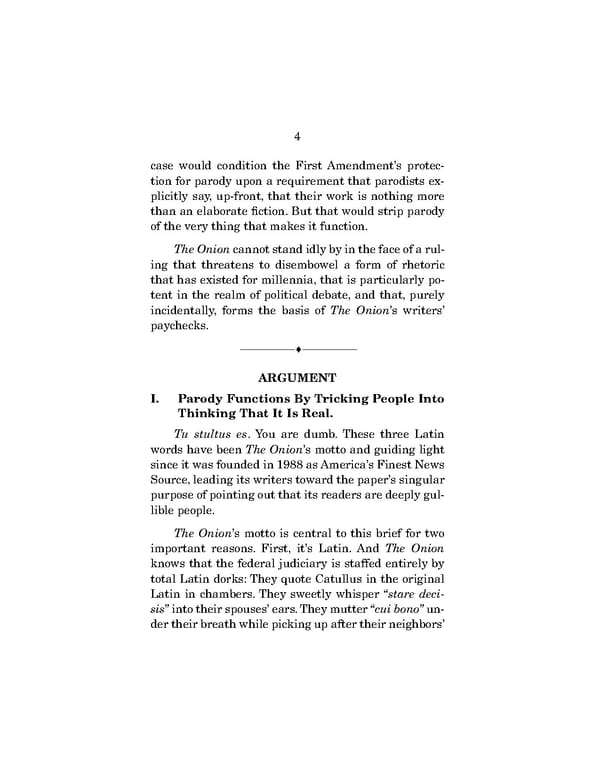4 case would condition the First Amendment’s protec- tion for parody upon a requirement that parodists ex- plicitly say, up-front, that their work is nothing more than an elaborate fiction. But that would strip parody of the very thing that makes it function. The Onion cannot stand idly by in the face of a rul- ing that threatens to disembowel a form of rhetoric that has existed for millennia, that is particularly po- tent in the realm of political debate, and that, purely incidentally, forms the basis of The Onion’s writers’ paychecks. --------------------------------- ♦ --------------------------------- ARGUMENT I. Parody Functions By Tricking People Into Thinking That It Is Real. Tu stultus es. You are dumb. These three Latin words have been The Onion’s motto and guiding light since it was founded in 1988 as America’s Finest News Source, leading its writers toward the paper’s singular purpose of pointing out that its readers are deeply gul- lible people. The Onion’s motto is central to this brief for two important reasons. First, it’s Latin. And The Onion knows that the federal judiciary is staffed entirely by total Latin dorks: They quote Catullus in the original Latin in chambers. They sweetly whisper “stare deci- sis” into their spouses’ ears. They mutter “cui bono” un- der their breath while picking up after their neighbors’
 Onion - Legal Case for Parody Page 8 Page 10
Onion - Legal Case for Parody Page 8 Page 10